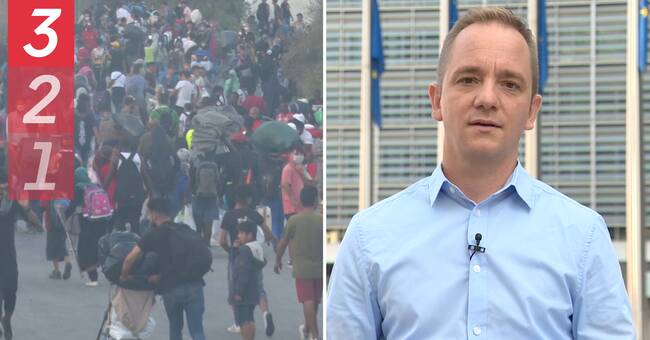It is not a grateful task she has, Ylva Johansson.
Trying to put together a migration policy that all member states can accept.
There are such different opinions, input values and interests that it is impossible to satisfy everyone.
So far, the EU has failed to agree on migration.
And failure has a high price.
Understood for the people who risk their lives in rickety boats or see their years of life run away in a dirty tent camp - but also for the EU as a political project.
Strong EU-critical opinion
In many Member States there is a strong EU-critical opinion, not infrequently dissatisfaction with the migration policy pursued is a contributing factor.
So the pressure to get through some kind of compromise is great.
Most member states have moved in a more restrictive direction since the refugee crisis in 2015 and perhaps the most difficult nut to crack is countries such as Hungary and Poland, which prefer hardly any migration at all and which raise rags at the slightest hint that Brussels is trying to trump it national sovereignty.
Giving member countries the opportunity to help with the return process, instead of accepting people who have been granted asylum, can be seen as a concession to these countries.
There is something small for most people
Ylva Johansson herself says that she does not think that any member state will be completely satisfied, but here is something small for most people:
Greece and Italy escape the Dublin Regulation, which dictates that they are the first country to be responsible for the asylum process.
Countries such as Sweden and Germany have a solidarity mechanism, even if it is diluted.
And the ambition is for those seeking asylum to have a faster and more predictable process.
Maybe that's enough of a compromise to go through, after a lot of further negotiation.
But as long as significantly more people want to apply to Europe than Europe's countries want to receive, tensions will persist.

